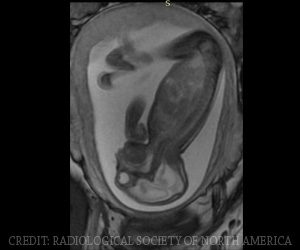Anti-dengue virus antibody identified, that is effective and protects from both dengue as well as Zika virus infections.
Highlights:
- Dengue virus antibody identified by current study team found to be effective against Zika virus infection as well, and can be used in areas endemic to both infections, such as Brazil.
- Administration of this antibody to a pregnant woman could potentially prevent Zika infection during pregnancy which has serious consequences for both the mother and the fetus. Dengue virus antibody has been found to be effective against Zika virus as well when tested on mice, according to a recent study by scientists from Washington University School of Medicine in St. Louis. This antibody could be potentially used to protect pregnant women and their fetuses from Zika infection, especially in areas hard hit by both dengue and Zika virus infections caused by related viruses and in fact spread by the same species of mosquito. The findings of the study appear on 25th September in Nature Immunology. "We found that this antibody not only neutralizes the dengue virus but, in mice, protects both adults and fetuses from Zika disease," said Michael S. Diamond, MD, PhD, the Herbert S. Gasser Professor of Medicine and the study’s senior author.
- At three weeks following infection, more than 80 percent of the untreated (placebo) mice had died, while all of the mice that had been given the anti-dengue antibody within three days of infection survived.
- 40 percent of the mice that received the antibody on day 5 of infection survived.
- One week later, on the 13th day of gestation, the amount of Zika’s genetic material was shown to be 600,000 times lesser in the placentas and 4,900 times lower in the fetal heads in mice that had received antibody on day 1 of infection, when compared to mice that had been given placebo.
- However, administering the antibody three days after infection was not as effective: The quantum of viral genetic material in the fetal heads was only decreased nineteen fold and that in the placentas twenty-threefold.
- Diamond and colleagues are working on determining the dose of the antibody a pregnant woman would require to ensure that her fetus is effectively protected throughout pregnancy.
- They are also working on ways to prolong the half-life of the antibody in the bloodstream, in order to reduce the number of doses of antibody injections needed.
- Zika Virus - (https://www.cdc.gov/zika/transmission/index.html)
- Dengue fever - (https://en.wikipedia.org/wiki/Dengue_fever)
Significance of Antibody that Offers Dual Protection
According to the study team, since both dengue and Zika virus infections are caused by related viruses, they believed that an antibody effective against dengue infection could possibly also be effective against Zika virus infection. Such an antibody could be of great use in regions such as Brazil where incidence of both infections is high and could protect pregnant women and their babies, who form an especially vulnerable group.To this end, Diamond and graduate student Estefania Fernandez worked with Gavin Screaton, MD, DPhil, of Imperial College London, who had earlier created a panel of human anti-dengue antibodies.
Testing the Efficacy of Dengue Virus Antibody Against Zika Virus Infection In Mice
The team proceeded to infect nonpregnant adult mice with Zika virus followed by administration of one of the anti-dengue antibodies on days 1, 3 and 5 after infection. For comparison, another group of mice was infected with Zika virus, but given a placebo instead of the antibody.However, since a woman may not be aware when she became infected, it would be reasonable to administer the antibody as soon as she is aware that she is pregnant.
Scope of the Study
Currently there is no effective treatment or vaccine to prevent Zika virus infection. Giving this antibody as a drug to a pregnant woman could ensure that both she and her fetus are protected for the duration of pregnancy. The important factor would be to make sure that there are sufficient levels of antibody in the mother’s blood that can protect her throughout pregnancy.About Dengue and Zika Virus Infection – In Brief
Dengue fever is a viral illness spread by mosquito bites. It is marked by fever, headaches, severe muscle and joint pain with possible serious consequences in infected individuals. However, the virus does not attack the fetus.Zika virus infection is caused by a related virus and also spreads by the bite of an infected mosquito. Zika virus causes moderate to severe illness in a pregnant woman, but more importantly attacks the fetus resulting in congenital abnormalities of the brain such as microcephaly.
Protecting Against Future Dengue Infection with a Different Strain
Presence of dengue virus antibodies in the bloodstream for months on end could pose aserious threat, because antibodies that protect against one strain of dengue virus could cause serious life threatening illness if the person is infected by another dengue strain. To ensure that this does not happen, the scientists tweaked the antibody in four places, rendering it impossible for the antibody to make dengue worse.
"We mutated the antibody so that it could not cause antibody enhancement of dengue infection, and it was still protective," said Diamond, who is also a professor of pathology and immunology, and of molecular microbiology. "So now we have a version of the antibody that would be therapeutic against both viruses and safe for use in a dengue-endemic area, because it is unable to worsen disease."
Future Plans
References:
Source-Medindia
















